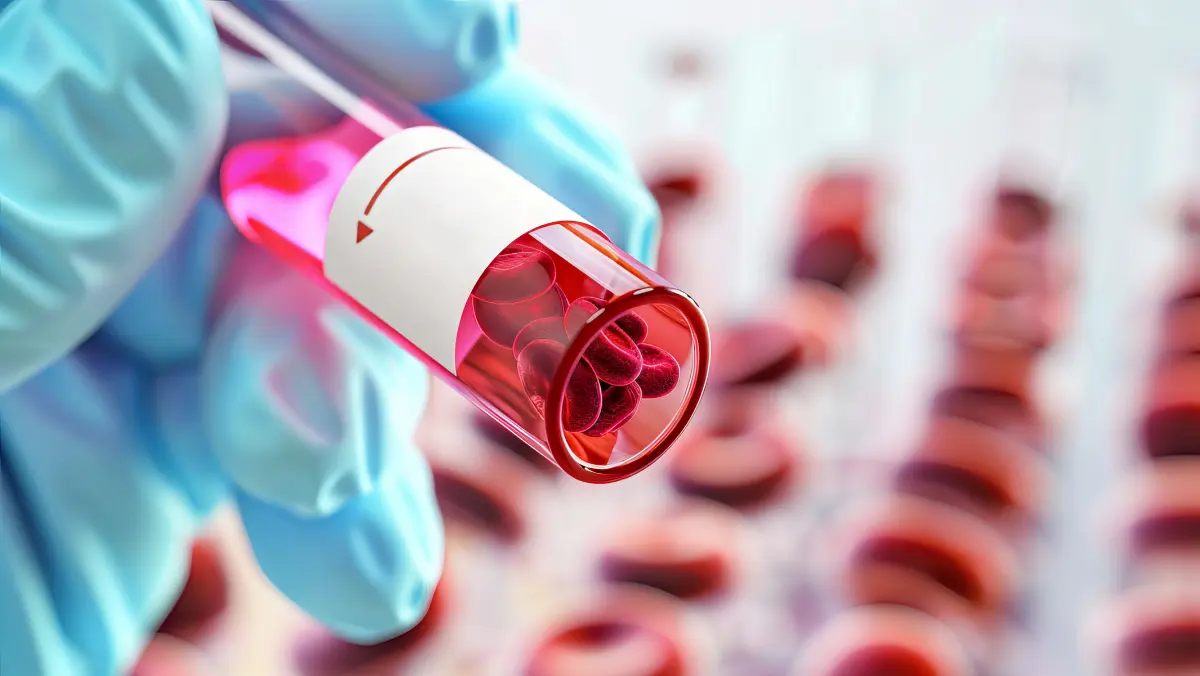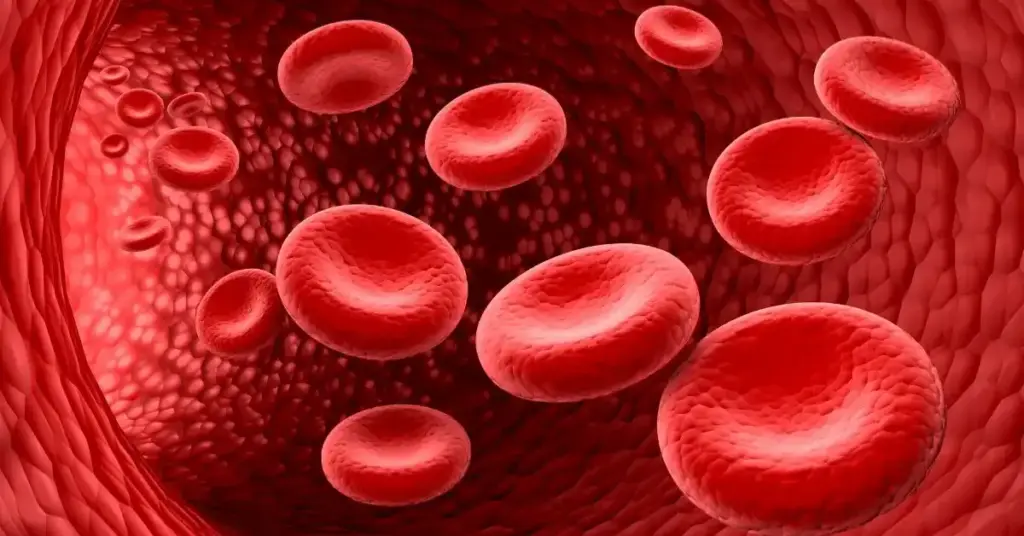
Hematology Treatment in Chennai has become a cornerstone of advanced medical care for individuals suffering from blood-related disorders. This specialized branch of medicine covers a broad range of conditions such as anemia, bleeding disorders, leukemia, and lymphoma. With access to state-of-the-art diagnostics and highly trained hematologists, patients in Chennai receive precise, personalized care aimed at restoring blood health and improving quality of life.
Hematology is a specialized branch of medicine focused on the study, diagnosis, treatment, and prevention of diseases related to blood and blood-forming organs. It includes a broad spectrum of conditions such as anemia, bleeding and clotting disorders, leukemia, lymphoma, myeloma, and various other blood-related cancers.
Recognizing the symptoms of blood disorders is crucial for early diagnosis and effective management. Hematology Treatment in Chennai focuses on identifying these signs early to initiate timely and targeted therapy.
This also includes specialized Pediatric Hematology, focusing on diagnosing and treating blood disorders in children, ensuring early care and age-appropriate therapies for better outcomes.
Hematology focuses on diagnosing and treating a wide range of blood disorders that affect overall health and organ function. With advanced diagnostics and therapies, Hematology Treatment in Chennai ensures timely care, while centers offering Hematology Treatment in Kilpauk specialize in managing both common and complex blood disorders. Patients can also evaluate Hematology Treatment Cost in Chennai to make informed decisions while accessing the best possible Hematology in Chennai.
These are among the most frequently treated conditions in hematology. They occur when red blood cell counts or hemoglobin levels are low, causing fatigue, weakness, and breathlessness. Hematology Treatment in Chennai often includes iron supplementation, nutritional support, or blood transfusions based on severity, with specialized centers in Kilpauk offering personalized interventions.
Leukemia and lymphoma are blood cancers that affect white blood cells and lymphatic tissues. Treatments may involve chemotherapy, immunotherapy, or bone marrow transplants. Early detection is crucial, and Hematology Treatment in Kilpauk provides advanced facilities for managing these cancers, making Hematology in Chennai a reliable choice for patients seeking specialized oncology care.
Conditions like hemophilia, thrombocytopenia, and deep vein thrombosis fall under this category. They are treated with clotting factor replacements, anticoagulants, or platelet transfusions. Expert hematologists in Chennai focus on Hemostasis & Thrombosis, ensuring a balance between bleeding and clot formation. These treatments not only improve quality of life but also help reduce Hematology Treatment Cost in Chennai through preventive care and regular monitoring.
These disorders disrupt blood cell production in bone marrow, often causing bone damage, kidney issues, and frequent infections. Hematology Treatment in Chennai provides targeted therapies such as proteasome inhibitors and stem cell transplants. Leading centers for Hematology in Chennai, including those in Kilpauk, ensure patients receive cutting-edge treatments tailored to their medical needs.
Accurate diagnosis is the cornerstone of effective hematologic care. With advancements in medical technology, centers offering Hematology Treatment in Chennai and Hematology Treatment in Kilpauk use a combination of traditional and advanced diagnostic methods to detect a wide spectrum of blood disorders, including Hematologic Cancers. Early detection not only improves patient outcomes but also aids in evaluating the Hematology Treatment Cost in Chennai, as timely intervention can often reduce the need for extensive therapies.
Effective management of blood disorders relies on a combination of standardized protocols and personalized treatment plans. Medical centers offering Hematology Treatment in Chennai and Hematology Treatment in Kilpauk provide a broad range of therapeutic options tailored to the patient’s diagnosis, severity of the condition, and overall health. Understanding these treatment modalities helps in assessing the expected outcomes and estimating the Hematology Treatment Cost in Chennai.
Hematology deals with a broad spectrum of blood-related disorders, affecting red blood cells, white blood cells, platelets, bone marrow, and lymphatic systems. Early diagnosis and appropriate Hematology Treatment in Chennai can significantly improve outcomes and quality of life for individuals affected by these conditions.
Hematology care in Chennai integrates advanced diagnostics, experienced specialists, and personalized treatment strategies to manage a wide range of blood disorders effectively. From common conditions like anemia to complex malignancies such as leukemia and lymphoma, patients benefit from precise medical attention and multidisciplinary support. At Kannappa Memorial Hospital, patients receive expert-guided care backed by modern infrastructure and evidence based protocols. The hospital is committed to delivering quality hematology treatment that prioritizes patient safety, comfort, and recovery outcomes. Whether it's routine management or intensive therapy, Kannappa Memorial Hospital ensures each patient is treated with compassion, expertise, and clinical excellence.
Hematology Treatment in Chennai has become a cornerstone of advanced medical care for individuals suffering from blood-related disorders. This specialized branch of medicine covers a broad range of conditions such as anemia, bleeding disorders, leukemia, and lymphoma. With access to state-of-the-art diagnostics and highly trained hematologists, patients in Chennai receive precise, personalized care aimed at restoring blood health and improving quality of life.
What is hematology?
Symptoms
Common Conditions Treated
Diagnostic Procedures
Treatment Approaches
Disorders related to hematology
Conclusion
Hematology is a specialized branch of medicine focused on the study, diagnosis, treatment, and prevention of diseases related to blood and blood-forming organs. It includes a broad spectrum of conditions such as anemia, bleeding and clotting disorders, leukemia, lymphoma, myeloma, and various other blood-related cancers.
Recognizing the symptoms of blood disorders is crucial for early diagnosis and effective management. Hematology Treatment in Chennai focuses on identifying these signs early to initiate timely and targeted therapy.
This also includes specialized Pediatric Hematology, focusing on diagnosing and treating blood disorders in children, ensuring early care and age-appropriate therapies for better outcomes.
Hematology focuses on diagnosing and treating a wide range of blood disorders that affect overall health and organ function. With advanced diagnostics and therapies, Hematology Treatment in Chennai ensures timely care, while centers offering Hematology Treatment in Kilpauk specialize in managing both common and complex blood disorders. Patients can also evaluate Hematology Treatment Cost in Chennai to make informed decisions while accessing the best possible Hematology in Chennai.
These are among the most frequently treated conditions in hematology. They occur when red blood cell counts or hemoglobin levels are low, causing fatigue, weakness, and breathlessness. Hematology Treatment in Chennai often includes iron supplementation, nutritional support, or blood transfusions based on severity, with specialized centers in Kilpauk offering personalized interventions.
Leukemia and lymphoma are blood cancers that affect white blood cells and lymphatic tissues. Treatments may involve chemotherapy, immunotherapy, or bone marrow transplants. Early detection is crucial, and Hematology Treatment in Kilpauk provides advanced facilities for managing these cancers, making Hematology in Chennai a reliable choice for patients seeking specialized oncology care.
Conditions like hemophilia, thrombocytopenia, and deep vein thrombosis fall under this category. They are treated with clotting factor replacements, anticoagulants, or platelet transfusions. Expert hematologists in Chennai focus on Hemostasis & Thrombosis, ensuring a balance between bleeding and clot formation. These treatments not only improve quality of life but also help reduce Hematology Treatment Cost in Chennai through preventive care and regular monitoring.
These disorders disrupt blood cell production in bone marrow, often causing bone damage, kidney issues, and frequent infections. Hematology Treatment in Chennai provides targeted therapies such as proteasome inhibitors and stem cell transplants. Leading centers for Hematology in Chennai, including those in Kilpauk, ensure patients receive cutting-edge treatments tailored to their medical needs.
Accurate diagnosis is the cornerstone of effective hematologic care. With advancements in medical technology, centers offering Hematology Treatment in Chennai and Hematology Treatment in Kilpauk use a combination of traditional and advanced diagnostic methods to detect a wide spectrum of blood disorders, including Hematologic Cancers. Early detection not only improves patient outcomes but also aids in evaluating the Hematology Treatment Cost in Chennai, as timely intervention can often reduce the need for extensive therapies.
Effective management of blood disorders relies on a combination of standardized protocols and personalized treatment plans. Medical centers offering Hematology Treatment in Chennai and Hematology Treatment in Kilpauk provide a broad range of therapeutic options tailored to the patient’s diagnosis, severity of the condition, and overall health. Understanding these treatment modalities helps in assessing the expected outcomes and estimating the Hematology Treatment Cost in Chennai.
Hematology deals with a broad spectrum of blood-related disorders, affecting red blood cells, white blood cells, platelets, bone marrow, and lymphatic systems. Early diagnosis and appropriate Hematology Treatment in Chennai can significantly improve outcomes and quality of life for individuals affected by these conditions.
Hematology care in Chennai integrates advanced diagnostics, experienced specialists, and personalized treatment strategies to manage a wide range of blood disorders effectively. From common conditions like anemia to complex malignancies such as leukemia and lymphoma, patients benefit from precise medical attention and multidisciplinary support. At Kannappa Memorial Hospital, patients receive expert-guided care backed by modern infrastructure and evidence based protocols. The hospital is committed to delivering quality hematology treatment that prioritizes patient safety, comfort, and recovery outcomes. Whether it’s routine management or intensive therapy, Kannappa Memorial Hospital ensures each patient is treated with compassion, expertise, and clinical excellence.
Hematology focuses on diseases related to the blood and blood-forming organs. Common hematologic diseases include anemia, leukemia, lymphoma, hemophilia, and clotting disorders like deep vein thrombosis. It also covers conditions affecting white blood cells, red blood cells, and platelets. Specialists diagnose and treat these conditions using various blood tests and therapies.





